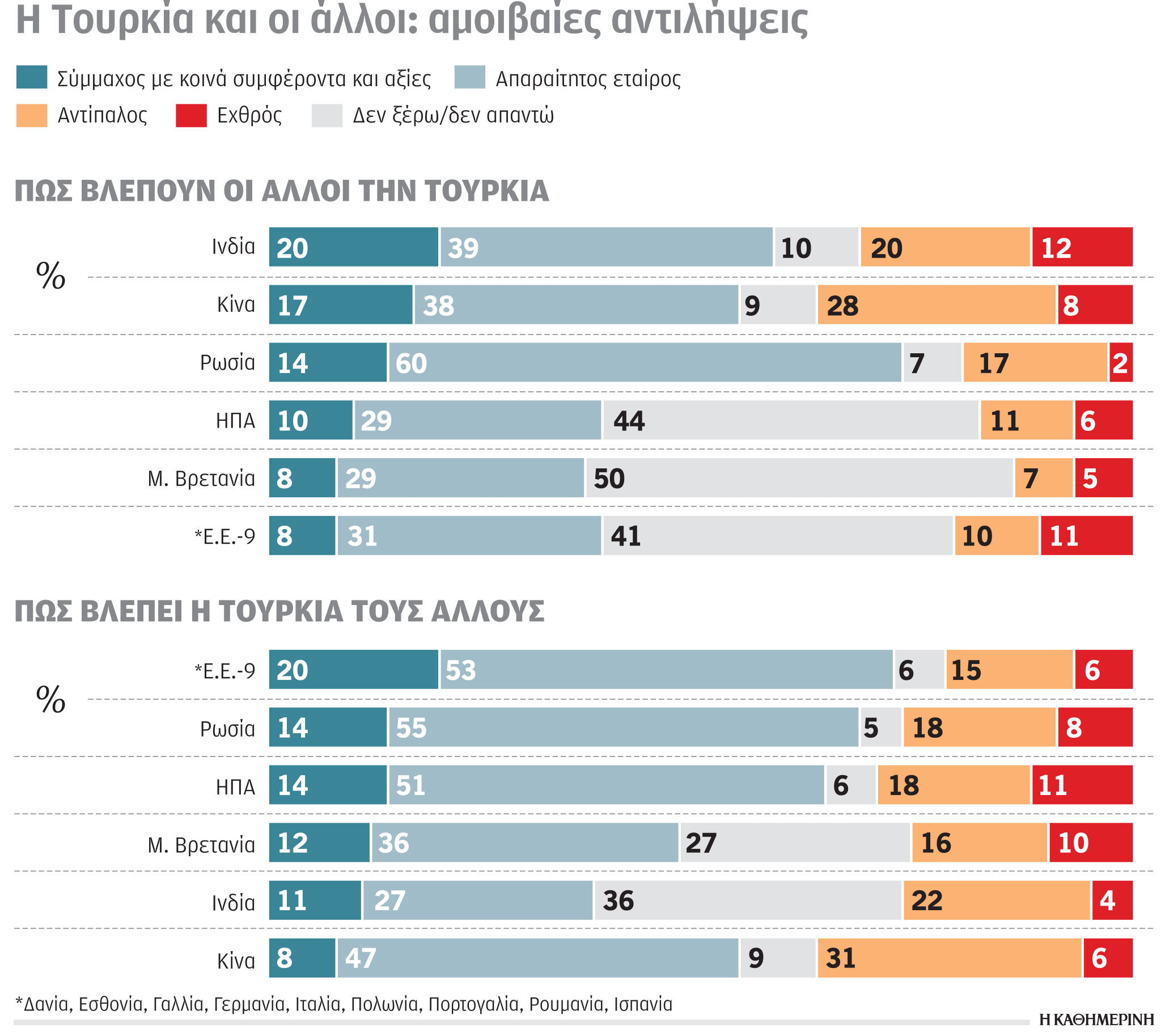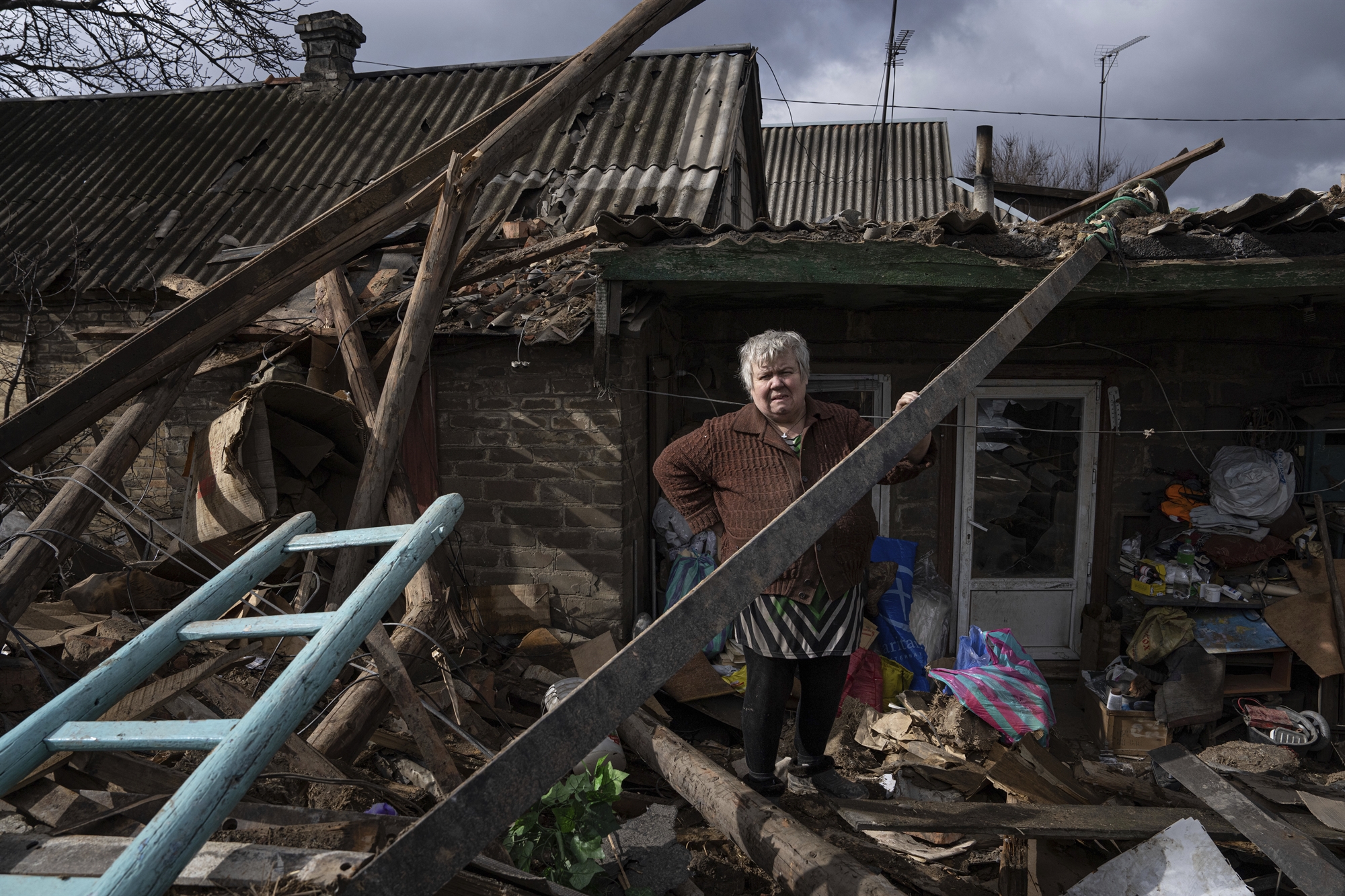
One year later Russian invasion of Ukraineno one doubts that the war is a turning point in The World History. The conflict itself challenged their fundamental beliefs. Europeans for security reasons, it increased the likelihood of a thermonuclear exchange, undermined the world economy, and left behind energy and food crises.
Although the Russian attack resonated around the world, citizens of different countries were affected and interpreted the events in different ways. Contrary to views in the West, citizens of many countries in the developing world believe that the Cold War is over forever and believe that the coming new international order will be characterized by multiple divisions of centers of power.
Common goals
They want a role
Due to its geographical position on the outskirts of Europe, Turkey sees itself playing a role similar to that which India aspires to play in the international arena. For his part, President Tayyip Erdogan has taken advantage of the war in Ukraine to impose his country as an inevitable player in the European political arena. At the same time, he managed to become an important supplier of arms to Ukraine, while remaining one of Russia’s most reliable trading partners.
Timothy Garton Ash (Professor of European Studies at Oxford)
The findings are extremely troubling. The transatlantic West, centered on Europe and the US, is more cohesive but has failed to convince other major powers such as China, India and Turkey. The lesson for Europe and the West is clear. We urgently need a new narrative that is truly compelling for countries like the world’s largest democracy, India.
The Turkish public shares these views of President Erdogan, considering almost all major powers (the US, China, Russia and the EU) to be Turkey’s “partners”. Most Russians, Chinese and Indians seem to view Turkey as a reliable economic and political partner in the same way, although a third of Chinese consider Turkey to be their country’s “competitor” or even “rival”.
In the West, most citizens treat Turkey as a partner. Impressively high, however, are the percentages of US, UK and EU citizens who admit they cannot find a suitable description for Turkey. The reason for this uncertainty in the West is likely to lie in Turkey’s dislike of Ankara’s new, dominant foreign policy, despite the fact that the country remains, albeit formally, a member of NATO.
Western conspiracy and suspiciousness of developing countries
In Europe, the war is seen not as an invasion of a neighboring country, but as an attack directed at the entire European continent. This is reflected in the strong support of European sanctions against Russia and the agreement of the majority of respondents to a complete ban on the import of Russian energy resources.
However, Western motives are suspect in China, India, Turkey, and Russia, with large segments of the population in these countries believing that American and European support for Ukraine is aimed solely at “protecting Western sovereignty.”

Democratic standards
Western democratic standards are viewed with distrust all over the world. In China, 77% of respondents believe that their country’s government is a “true democracy” superior to that of the US and Europe. 57% of Indians and 36% of Turks believe their democracy works better than any other.
During the 2003 Iraq War, European intellectuals such as Jacques Derrida and Jurgen Habermas sought to clarify European political identity by contrasting it with the American one. While praising the political power of Europe, they sought to present it as an ideal counterbalance to American military power. In the last decade — and especially since Trump came to power — the debate about European independence and strategic autonomy has been back in the spotlight. However, Russia’s invasion of Ukraine has reaffirmed the central role of American power in Europe.
Billions of dollars spent by Washington on maintaining the Ukrainian military machine, as well as transatlantic collusion in the form of sanctions and diplomatic isolation of Russia, have done credit to Western institutions such as NATO and the G7. The new reality did not go unnoticed by the inhabitants of the planet. Survey respondents from developing countries often view Europe and America as part of a politically and ideologically homogeneous “West”. The vast majority of citizens of Turkey (77%), China (60%) and Russia (59%) do not see significant differences in EU policies. and the United States in relation to their countries, which rather caused the disappointment of French President Macron and other supporters of European strategic autonomy.

It is now clear that, contrary to the Kremlin’s expectations, the war has strengthened the West rather than weakened it. The only opportunity to break the transatlantic front comes from the Western alliance, for example, with the victory of Donald Trump in the 2024 elections.
The West is currently united, but this does not mean that its influence in the international arena has increased. The paradox is that the new unity coincides with the emergence of the “post-Western” world. The rallying of the West comes at a time when powerful new players in the international arena refuse to submit to Western dictates.
The poll showed that many Westerners believe that the new international order will be characterized by political conflict between West and East, and between democracy and authoritarianism. For this reason, many Western leaders believe that countries such as India and Turkey can be persuaded to join the Western camp.
Trade and Security
The peoples of these countries see themselves in completely different ways: as rising great powers capable of uniting with the West in some cases and not in others. Unlike during the Cold War, today’s trading partner is not necessarily a security ally. Even when emerging powers join the West, they tend to have good relations with Russia and China. Brazilian President Lula is using this tactic to keep his country neutral in the war in Ukraine, despite his public admission that Russia attacked a neighboring state “wrongly”.
The West should treat India, Turkey, Brazil and other major developing countries as sovereign states and equal players in world history, and not as pawns moved at the whim of the powerful. These countries do not represent a new “third bloc” or pole of the international political arena and do not share a common ideology.
A Ukrainian victory in the war and a new alliance with the West will be critical to the formation of a new European regional order, but will not lead to the restoration of an American-led new liberal order. Instead, the West will have to learn to live with dictatorships and new autonomous authorities.
Source: Kathimerini
Anna White is a journalist at 247 News Reel, where she writes on world news and current events. She is known for her insightful analysis and compelling storytelling. Anna’s articles have been widely read and shared, earning her a reputation as a talented and respected journalist. She delivers in-depth and accurate understanding of the world’s most pressing issues.